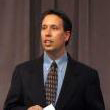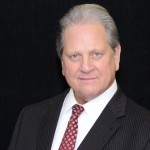While a new arena in Orlando, a new ballpark in Seattle or a new football stadium in suburban Washington, D.C., will generate billions of dollars of economic activity over their lifetimes, the simple fact is that local governments almost always put far more into these projects than they receive in direct economic returns.

Timothy Chapin
In return for these massive investments, local governments do not typically receive revenues from ticket sales, parking, concessions, naming rights and other major revenue streams. Those go directly to the teams and eventually flow into the pockets of millionaire players and billionaire owners.
Project proponents instead point to the indirect economic effects from these projects, including increased sales taxes, property tax bumps in the surrounding districts and jobs created by the project.
What these proponents typically fail to note is that most of these revenue streams are small and many do not represent new money in a local economy. Decades of expert empirical research by excellent scholars like Robert Baade, Richard Dye, Mark Rosentraub and Judith Grant Long have demonstrated the fallacy of the “sports as economic development” argument.
While there are many reasons for the public sector to invest in sports facilities, tangible economic development benefits should not count among those reasons. Instead, the public sector should justify sports investments by pointing to the intangible benefits of these projects, which include increased civic pride, an improved sense of community and a brand for the city.
There is value to a community having a team: for the fans, there is a real sense of pride associated with victory and for the city, an ability to market a community on local, regional and national television (In what other settings than sports can Oklahoma City, Green Bay or Edmonton compete with New York City or Los Angeles?).
So the next time you’re asked to vote for or against public investment in a sports facility, you should look not to your pocketbook, but to your heart, to inform your choice.
Timothy S. Chapin, Ph.D., is chair of the Department of Urban and Regional Planning and co-chair of the Policy Panel at Florida State University.








